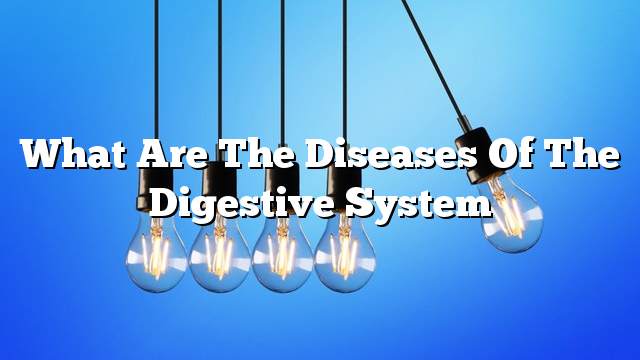The human digestive system is a series of processes that transform food into essential nutrients that are absorbed in the body and move unused substances “waste” out of the body, it is necessary for good health that the digestive system works well, the body can not be fed or disposed of waste What stopped working.
Digestion begins by chewing through the teeth, which is part of the skeletal system, and plays a key role in the digestion process. In carnivores, teeth have been designed to kill and break down meat. As the teeth of herbivorous animals “to grind plants and other nutrients to facilitate digestion, the saliva that secrete from the salivary glands in the mouth, contains salivary amylase enzyme, which destroys starch.
Swallowing goes chew the food into the esophagus, where it passes through the pharynx and pharynx. At this point, the food takes the form of a swallow – a small round mass – and the digestion becomes involuntary. A series of muscle contractions, called peristalsis, are transmitted through which food is transferred to the rest of the system. To pour from the esophagus to the stomach. And complete the fate until they travel with blood in the vessels or be disposed of with waste, this is the fate of everything enters the mouth.
Diseases of the digestive system:
There are many problems that can affect the digestive system, including: abdominal pain, blood in the stool, puffiness especially when it is permanent, or constipation as well as diarrhea, heartburn, urinary incontinence, nausea, vomiting and difficulty swallowing.
Among the diseases widely known in the digestive system is colon cancer. This is usually slow-growing cancer and can often be avoided if detected early.
Many diseases and conditions are linked to the digestive system – including irritable bowel syndrome, lactose intolerance, blockages, GERD, Crohn’s disease and gastrointestinal disorders, as well as the aid of gastric ulcer and diaphragm hernia – which can be chronic and difficult to diagnose and treat. All these diseases are associated with the digestive system and with the food we eat, and many of those suffering from the above “one of the diseases mentioned” restrict their meals.
* Tests to examine the digestive system: –
There are a number of tests for the detection of diseases of the digestive system, the colonoscopy is an examination inside the colon using a long and flexible instrument containing fiber optic and know this tool with a colonoscope. Other tests, such as upper gastrointestinal endoscopy, capsule endoscopy, pancreatic endoscopy and laparoscopic ultrasound, allow for the detection of a digestive problem and reassures the individual of the nature and condition of the patient.
